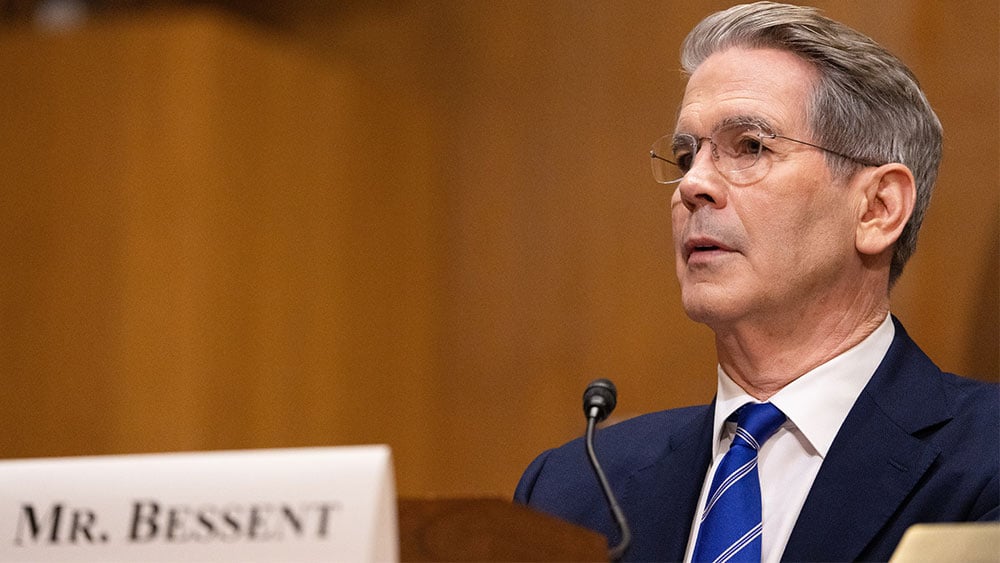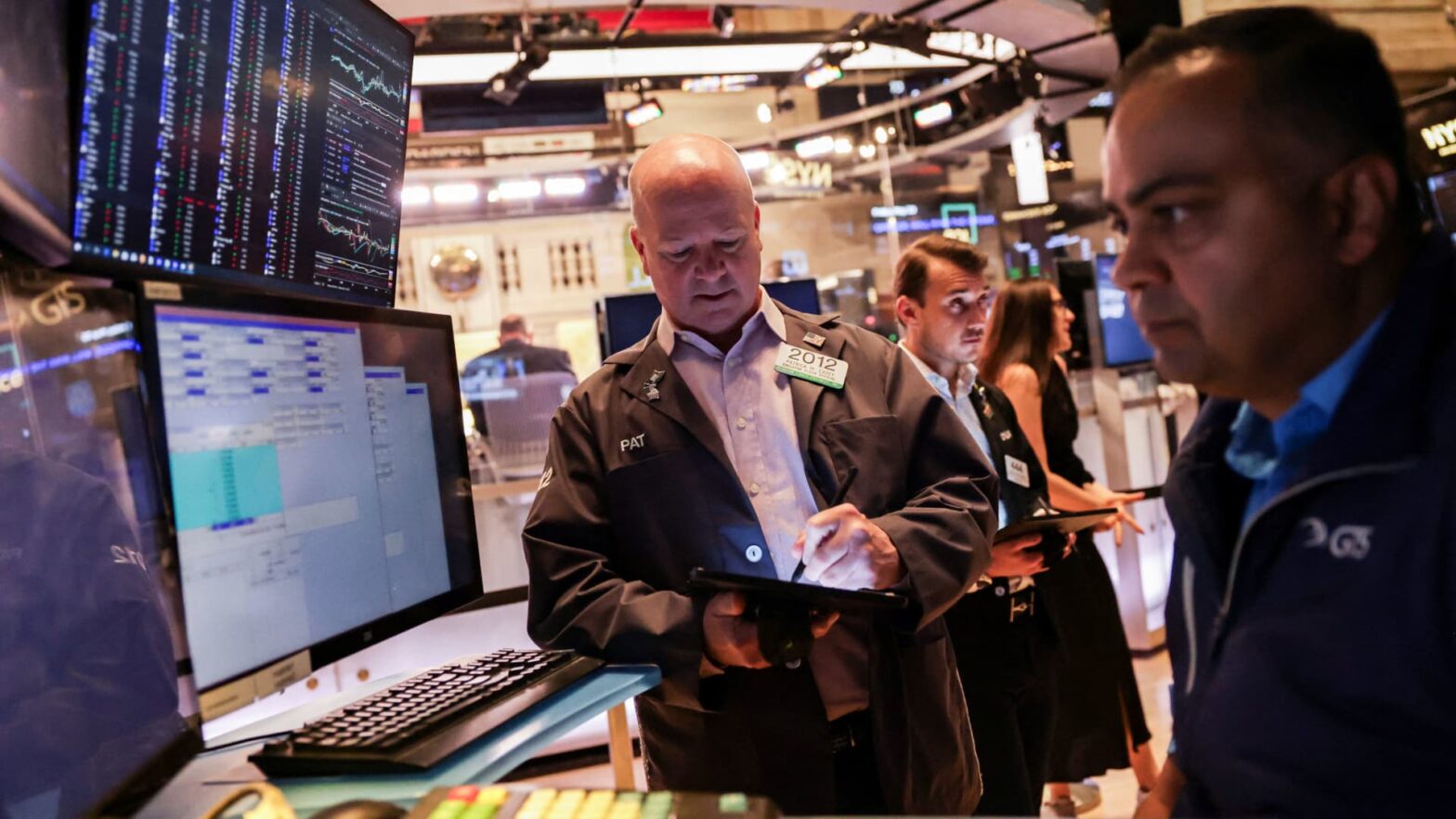European stock markets were broadly higher on Monday morning, as investors parsed news of a U.S. tariff exemption for some tech items while the earnings season kicks into gear.
The pan-European Stoxx 600 index was 2% higher at 10:27 a.m. London time with all sectors in the green, bolstered by technology gains of 2.5%. Oil and gas stocks jumped 3.5% despite forecasts of weaker oil prices in 2025, while banks rose 2.9%.
U.S. President Donald Trump’s extreme and fast-changing tariff policy has led to one of the most volatile periods on record for global equities. After a strong start to the year in which it had been outperforming U.S. markets, the Stoxx 600 has fallen more than 8% in April so far, while Wall Street’s S&P 500 has lost 4.43%.
In fresh developments over the weekend, smartphones, computers, and other electronic devices and components were exempted from the U.S. duties — though only temporarily, according to officials. U.S. Customs and Border Protection guidance indicates 20 product categories are exempt from the 125% tariff newly-imposed by Trump on Chinese imports and the 10% baseline tariff on imports from other countries, while a 20% tariff on all Chinese goods remains in effect.
Stoxx 600 index.
Currency and bond markets have also been swept up in the action, with the euro climbing to its highest level against the U.S. dollar for more than three years. The yield on the U.S. 10-year Treasury jumped from 3.99% at the start of last week to 4.49% by Friday, with its spread over the German 10-year bund widening by the most in a week since 1990.
Meanwhile, investors must also contend with the start of first-quarter earnings season this week, with companies now facing a hugely uncertain trade environment. In Europe, luxury giant LVMH will report after the market close. Stateside, investment bank Goldman Sachs will report.
It is relatively quiet on the data front, but inflation figures will be released in the coming days ahead of the European Central Bank’s April meeting on Thursday.
Asia-Pacific markets gained on Monday, as U.S. stock futures rose.
German cartel office approves UniCredit to take stake of up to 29.99% in Commerzbank
Germany’s Federal Cartel Office on Monday said it had cleared Italy’s UniCredit to acquire a stake of up to 29.99% in Commerzbank, amid persisting questions over a potential future takeover by the Italian lender.
“The notified minority acquisition alone will strengthen UniCredit’s market position in the private and corporate banking business in Germany. We have therefore taken a close look at the financial services segments particularly affected. Other significant competitors are active in all areas, which is why the transaction had to be approved,” said Andreas Mundt, president of the Federal Cartel Office, in a Google-translated statement.
Last month, UniCredit, which progressively accrued a roughly 28% stake in Commerzbank over surprise derivative builds at the end of last year, received critical permission to own a shareholding of up to 29.99% in the German lender from the European Central Bank, which has euro zone banks under its purview.
It remains unclear whether UniCredit will pivot toward a full takeover offer for Commerzbank, after it simultaneously launched an acquisition bid for Italian peer Banco BPM. Commerzbank has meanwhile been actively making a standalone case with investors.
— Ruxandra Iordache
Euro, sterling extend gains against U.S. dollar
The euro and British pound extended last week’s gains as the U.S. dollar remained on the backfoot on Monday, with the dollar index down 0.63% at its lowest level for three years.
The euro was up 0.23% at 8:50 a.m. U.K. time at $1.138, while sterling was up 0.6% at $1.136.
Benjamin Picton, senior macro strategist at Rabobank, said in a Monday note that U.S. Treasury Secretary Scott Bessent’s prior argument that the cost of tariffs would be partially shouldered by exporting countries due to a stronger dollar appeared to have “gone out the window for now.”
However, Picton also noted that the overvaluation of the U.S. dollar due to its reserve currency status was a long-standing bugbear of Trump and some of his allies.
Euro/U.S. dollar exchange rate.
— Jenni Reid
Europe stocks open higher
European stocks roared back into the green at Monday’s open after a weekly loss of 1.9% for the regional Stoxx 600 index.
Germany’s DAX popped 2.06%, while France’s CAC 40 and the U.K.’s FTSE 100 were up by 1.9% and 1.75%, respectively.
German DAX index.
— Jenni Reid
Markets have suffered one of ‘most tumultuous periods in living memory’: Deutsche Bank
The scale of recent financial market volatility spurred by Trump tariffs was highlighted in research published by Deutsche Bank strategists Henry Allen and Jim Reid on Sunday, who called it among the “most tumultuous periods in living memory.”
The period since the initial announcement on April 2 has seen the S&P 500 record its worst day since the pandemic in March 2020, along with its best day since the Financial Crisis in 2008, they said. Swiss equities have been among the worst performers in Europe, with the Swiss Market Index falling 10.4% in local currency terms.
They also highlighted moves in global bond yields, with the U.S. 10-year yield seeing its biggest weekly increase since 2001, despite its traditional status as a safe haven investment during turbulent periods. The spread between the 10-year Treasury yield and Germany’s 10-year bund has widened by the largest weekly amount since German reunification in 1990, as the latter has emerged as an alternative flight-to-safety asset.
— Jenni Reid
Goldman Sachs lowers oil forecast for 2025 and 2026
Goldman Sachs forecasts a decline in oil prices this and next year on the back of the rising risk of a recession and higher supply from the OPEC+ group.
The investment bank expects the Brent Crude to edge down to $63 a barrel through the end of this year and $58 next year. Meanwhile, it expects the West Texas Intermediate to average at around $59 a barrel for the rest of this year and $55 in 2026.
Oil prices fell Monday on the back of uncertainties on the rollout of U.S. President Donald Trump’s tariff rollout.
Brent Crude fell 0.37% to trade at $64.52 per barrel as of 11.35 a.m. Singapore time, while the WTI dropped 0.39% to $61.26.
— Amala Balakrishner
Asian tech giants climb after Trump’s pause on consumer electronics tariffs
Technology stocks in Asia-Pacific climbed Monday after U.S. President Donald Trump paused tariffs on phones, computers and consumer electronics.
Taiwan’s Hon Hai Precision Industry – which assembles iPhones for Apple – was up 4.46% as at 10 a.m. Singapore time.
Over in Japan, gains were led by Nvidia supplier Advantest Corp, which added 3.89%, and SoftBank Group, which was up 2.29%.
Meanwhile, South Korean parts maker LG Innotek, which gets a substantial chunk of its revenue from Apple, was last seen up 7.26%.
In Hong Kong, the best performers were Nio which surged 6.33%, Alibaba which gained 5.73% and Xpeng which advanced 5.6%.
— Amala Balakrishner
There’s still ‘mass uncertainty’ despite Trump tariff exemption being ‘right move,’ according to Dan Ives
While the Trump administration’s move to exempt smartphones, computers and semiconductors, among other electronic devices and components, from “reciprocal” tariffs may have been a win for Big Tech, the market could still be facing “mass uncertainty” around the president’s tariff policy, says Wedbush analyst Dan Ives.
“The White House made the right move in our view as tech leaders and the overall tech industry knew that if these tariffs went into effect it would essentially be a shut off valve for getting products to the US consumers,” Ives wrote in a note dated Sunday.
“[B]ut still there is mass uncertainty, chaos, and confusion about the next steps ahead with all focus on China tariff negotiations being front and center and any progress on this game of high stakes poker between Beijing and DC being crucial to the markets and the economy this week,” he continued.
— Sean Conlon















